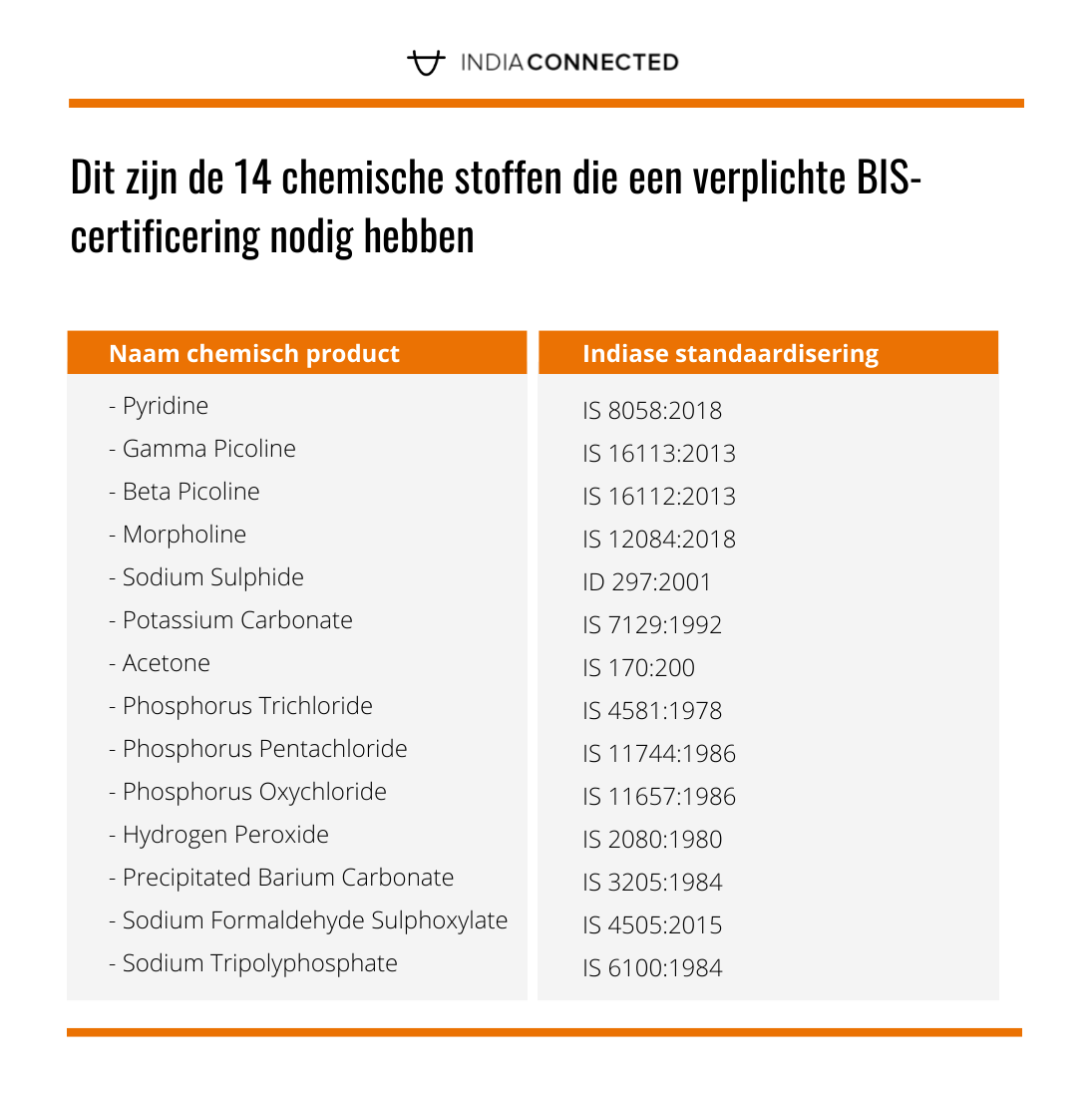In June 2020, the Indian government has introduced a mandatory BIS certification for the production and import of 14 chemical products. If you, as a foreign manufacturer, have not applied for this certification by 13 December 2020, you will no longer be able to export your products to India. Our expert Dhrub Thakur explains how to handle this process in the smartest possible way.
Bureau of Indian Standards (BIS)
The 'BIS' in BIS certification stands for Bureau of Indian Standards. This is the national certification body of India, which comes under the Ministry of Consumer Protection, Food & Public Distribution. The bureau was established in 1986 with the aim of setting up standardisation of quality norms for various products such as building materials, food products, consumer electronics and raw materials.
"The list of products that need to be inspected by the BIS is constantly expanding," says Dhrub Thakur, head of the legal department at Maier+Vidorno, the partner of IndiaConnected. "For example, last June it was decided to add 14 chemical products, which from now on must have a mandatory certificate issued by the BIS. Producers have been given a deadline of six months to obtain their certificate. That is a very tight deadline, because the procedure itself can take up to six months."
Chemical products are subject to mandatory BIS certification including factory inspection
There are 3 different types of BIS certifications:
The mandatory BIS certification including factory inspection
The mandatory BIS certification without factory inspection
The voluntary BIS certification
"The chemicals just added fall under the first type of certification," Dhrub explains. "This means that both domestic and foreign manufacturers need licences to manufacture, sell and supply chemical products in India. A factory inspection is mandatory for both. It is therefore an incredibly time-consuming process that producers need to start as soon as possible."
Obtaining the BIS certification without a local expert is asking for trouble
"The process starts with a lot of paperwork that has to be submitted to the BIS," says Dhrub. "The producer must demonstrate how the quality of the product is ensured. It has to be explained on paper exactly how the production processes work, from the purchase of the raw materials to the ways in which the final product is tested." Dhrub therefore recommends hiring a local expert who has specific experience in applying for BIS certification for international companies. "As a company, you really need someone who has worked with the BIS before and understands how everything needs to be documented and submitted. So don't just accept an offer from your importer or agent in India who says they will take care of it. If you delay, your business in India will come to a standstill in December.
Once the submitted documents are approved, a visit to the factory is scheduled by the BIS. "It is a requirement of the BIS that the foreign entity has a contact person in India, who can organise the visit to the factory together with the BIS. This can of course be the importer or agent," says Dhrub. "The inspector will then visit to verify the submitted documents and inspect the processes in the factory. Samples will also be taken, which will be tested in an independent laboratory in India before certification can be granted."
According to Dhrub, European producers will probably have to make little or no changes to their production process or product. "The Indian standard is not very different from other standards that apply in Europe or the United States, for example. Despite this, the application process is extremely time-consuming, so I cannot stress enough that you, as a foreign producer, should start this process on time, with the right local help."


